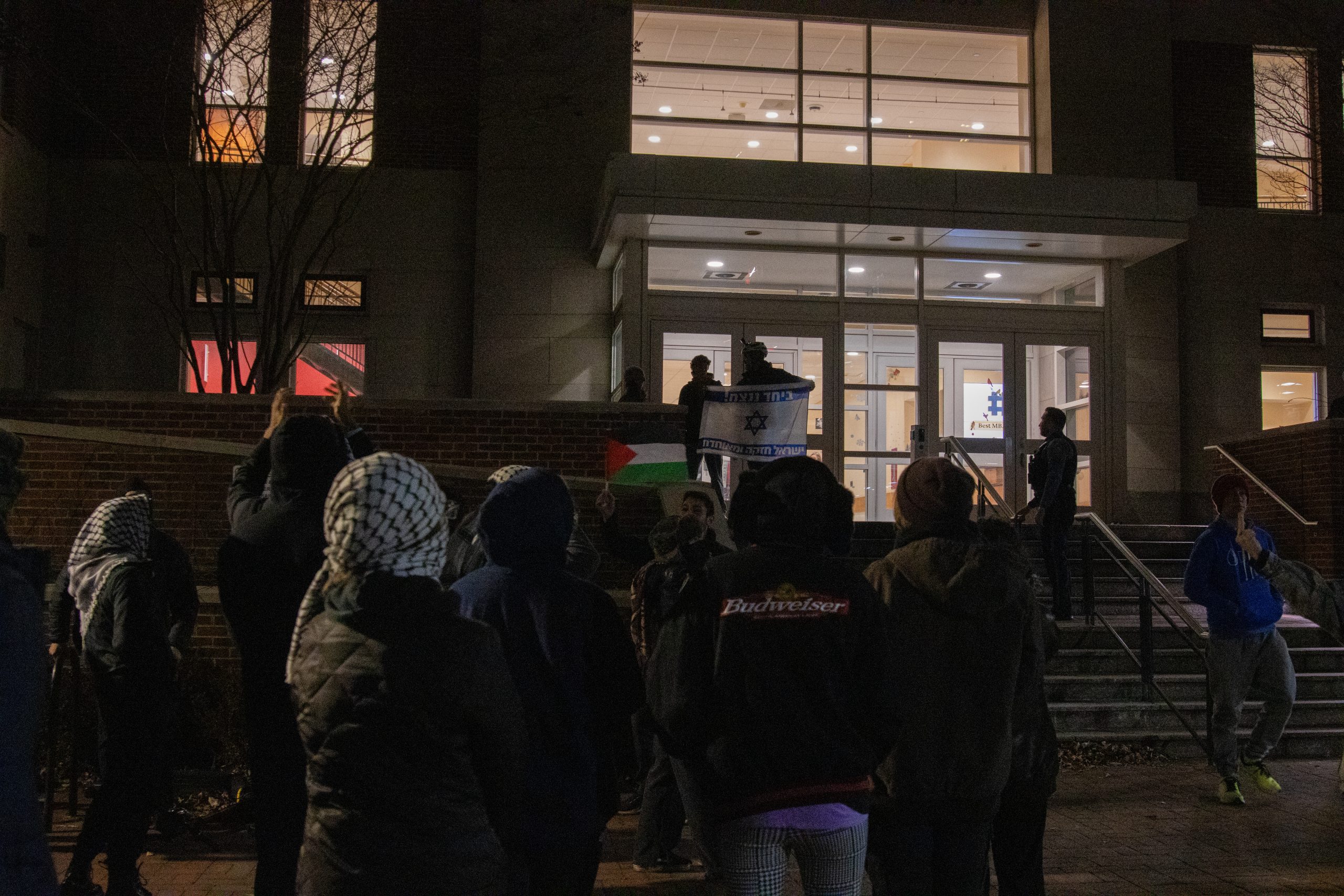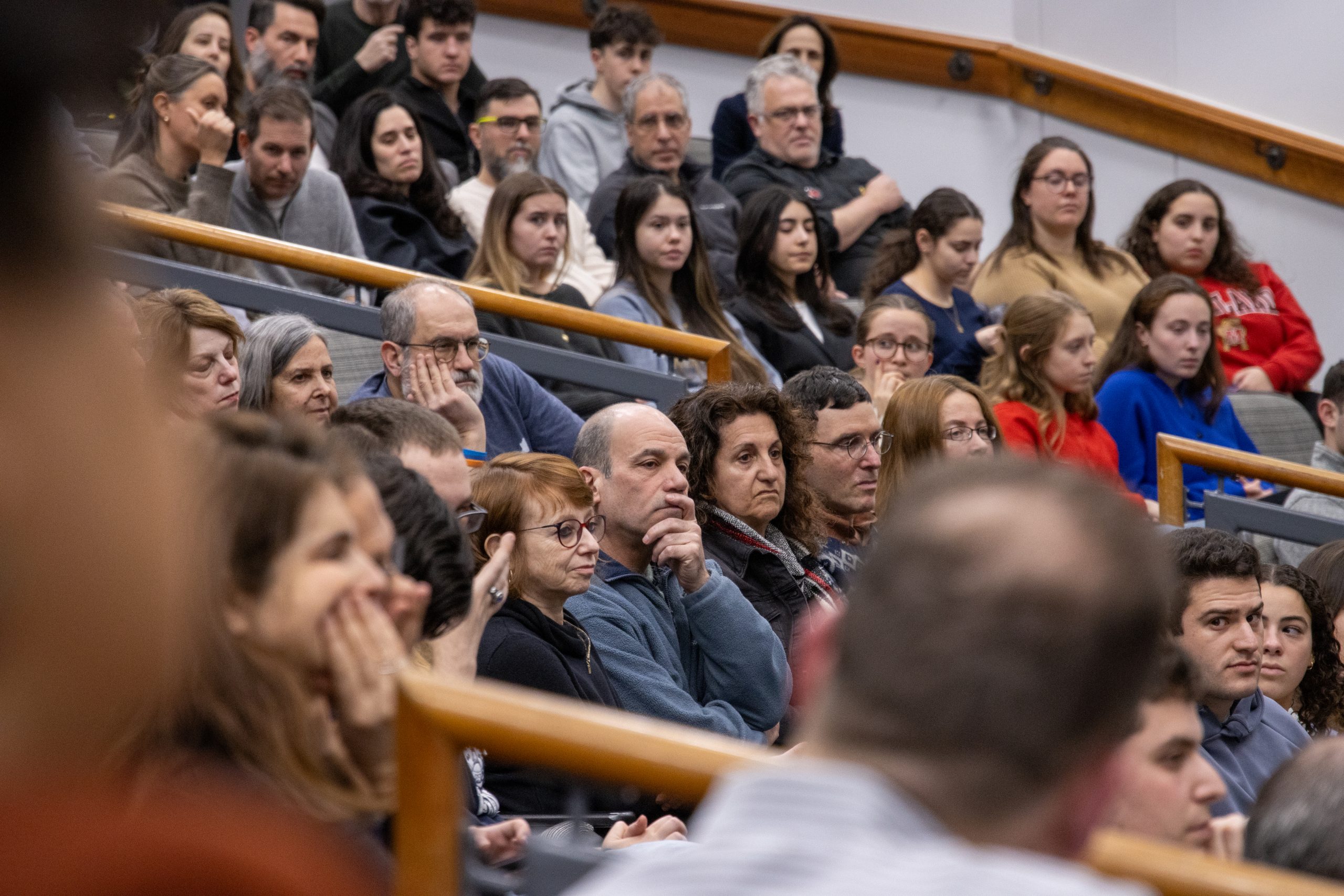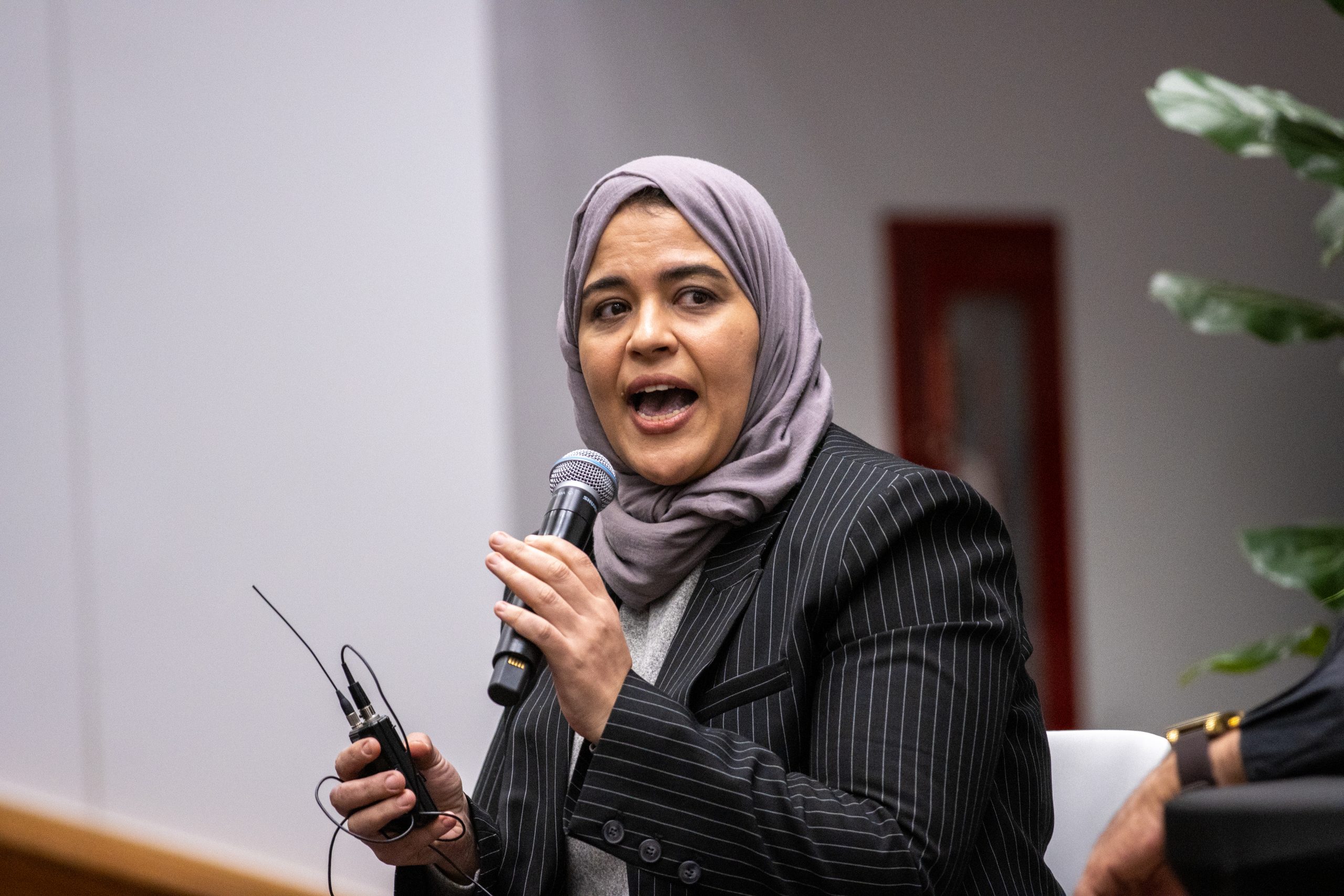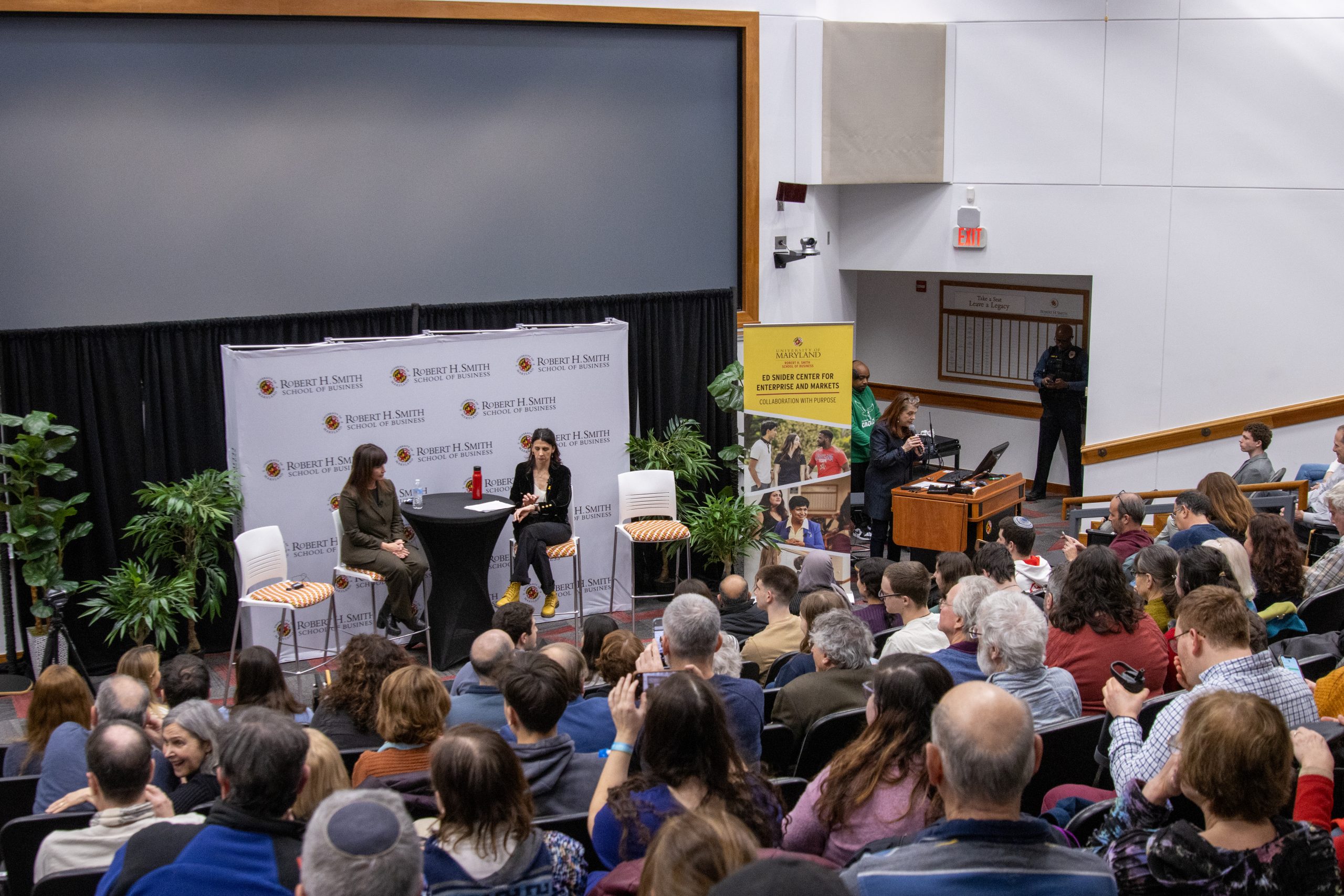About 30 University of Maryland community members gathered outside this university’s business school Sunday evening to protest controversial speakers at an event about political negotiations in the Middle East.
More than 170 people attended the business school’s panel discussion, which featured former Israeli politician Einat Wilf, Egyptian writer Dalia Ziada and Palestinian political analyst Bassem Eid. Nearly 100 additional guests watched the panel virtually, according to the business school.
All three speakers have voiced support for Israel’s military offensive in Gaza since Hamas’ Oct. 7, 2023, attack on Israel.
This university’s Students for Justice in Palestine chapter previously organized a letter campaign demanding the business school cancel the event because of “biased agendas that spew racist ideologies” that harm students who support Palestine, as well the Muslim and Arab communities on campus, the letter read. The letter was signed by more than 970 people.

Students for Justice in Palestine member Matt Foos, one of the organizers of Sunday’s protest, told The Diamondback before the panel that he hoped to “mobilize” community members against the school’s decision to host the event.
[UMD business school adds speaker to Middle East panel after calls to cancel event]
“[The protest] is a bit impromptu and last minute, but just as an expression of the outrage that we feel that the school is still hosting this event,” Foos, a junior philosophy and physics major, said.
In a statement to The Diamondback on Monday, the business school wrote that “differing viewpoints were voiced during the discussion” and that the school’s Fact-Based Discourse Initiative, which presented the panel, “sponsors events that demonstrate civil, respectful, evidence-based discourse on a variety of topics.”
Discussions about peace negotiations in the Middle East — including Palestinians’ right to return to their homeland — have increased since Hamas’ Oct. 7, 2023, attack on Israel. Hamas killed more than 1,200 people and took about 250 hostages in its attack, according to the Associated Press. Israel declared war on Hamas the next day and has killed more than 48,000 Palestinians since, the Associated Press reported Saturday.
Israel and Hamas agreed to a temporary ceasefire deal in January. The ceasefire’s current phase is set to end on March 1, according to the Associated Press.
During the first half of Sunday’s event, Wilf told the audience that her thoughts on the conflict between Israel and Palestine have changed over time through research and experience living in Israel.

Wilf, a member of Israel’s parliament from 2010 to 2013, formerly served as an intelligence officer in the Israel Defense Forces. Foos said one of the reasons he protested Wilf speaking was because she previously said Palestinians who were forcefully displaced during the 1948 Arab-Israeli War have no “right of return.”
The Arab-Israeli War after Israel’s establishment caused about 700,000 Palestinians to flee or be permanently expelled from their homes during the Nakba, or “catastrophe” in Arabic, according to the Associated Press.
When Wilf was younger, she thought the only path to peace was establishing a Palestinian state in Gaza and the West Bank, she told the audience. She now believes that “as a matter of top priority, the Jews want a state, and the Arabs want the Jews not to have a state. By definition, irreconcilable,” she said.
Wilf argued the key to peace in the Middle East is for the Arab world to acknowledge that Jewish people have the right to establish a state in their ancestral homeland.
Eid and Ziada discussed potential ways to reach peace negotiations during the second half of the event.
[UMD students urge business school to cancel Middle East panel over controversial speakers]
Ziada has written multiple books about Middle Eastern politics and is the director of the Liberal Democracy Institute, a think tank that studies political transformations in the Middle East, according to its website.
She spoke about the historical context of the Middle East and emphasized the importance of creating a new Palestinian government to replace the “corrupt” Palestinian National Authority, which has legal control of the Gaza Strip and parts of the West Bank.
“There is a solution,” Ziada said. “We just need to think outside of the current paradigm.”

According to his website, Eid was born in East Jerusalem and founded the Palestinian Human Rights Monitoring Group, an organization monitoring human rights violations committed by the Palestinian National Authority. Eid has also criticized people calling for Palestinians’ “right to return” to their homeland.
Eid said that advocates for Palestine in the United States should not speak on behalf of Palestinians.
“If you want to fight, come to Gaza. Come to the West Bank, not here,” Eid said.
Throughout the event, protestors chanted outside the business school.
One protestor, freshman American studies and communication major Nick Cosgrove, said students should be “angry” that the university hosted the panel.
“I don’t want events with Zionists on my campus,” Cosgrove told The Diamondback. “I want the university to just take … more progressive action.”
Erez Keler, a panel attendee and co-president of this university’s Mishelanu chapter, said he thought the protestors could have “gained a lot” from listening to the panel.

“The whole talk was based on this idea of mutual discourse and negotiation and understanding,” Keler said. “I feel like if [protestors outside] had sat down and listened, we all could have benefited a lot from that.”
The panelists’ different personal experiences added to the talk, Keler said.
Senior government and politics major Omar Sabra, a member of this university’s Students for Justice in Palestine chapter, told The Diamondback he was disappointed in the university’s decision to hold the panel.
“This event claims to be about negotiation,” Sabra, who protested the event, said. “How can you have an event about representation, about negotiation, when you have both sides supporting a genocidal state, both sides supporting the same entity that has killed Palestinians for years and years and years.”
Senior staff writer Akshaj Gaur contributed to this story.





